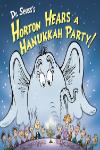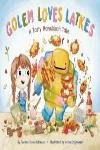Breadth and Meticulousness; Thoughts on “Why Are Jews Not Christians?” by Zeev Farber

Buy this book at Amazon or at Bookshop
I find that reading a book that deals with theology and history often challenges my own belief system. To be more precise it encourages me to examine the validity of my own thinking, faith, and biases. Zeev Farber’s book proved to be a series of excellent prompts for doing so. But before I go on publicly exploring myself let me share my thoughts on the book itself.
The most amazing features of this book are its breadth and meticulousness. On one hand, the author goes through hundreds of topics related to the questions asked in the book’s title and the subtitle. The latter being:
Why did exactly those people that Jesus appealed to, his contemporary Jews, not accept Jesus? Why have the Jews not accepted Jesus later?
The range of sources utilized is quite astounding. I spotted a number of Russian authors who I haven’t even heard about. The author, being of Russian origin, probably had better exposure to them than those who could read only those of them that had been translated. I would estimate that more than half of the book is made up of quotes from various quotes. In my book, it is a good thing, but only covers half of the page. The other half is how he deep dives into the original, primary, and secondary texts for answers. The majority of these sources are Christian, which should not be surprising, considering the topic. Nevertheless, I was happy to acknowledge the author’s familiarity with Christian scriptures and theology. Just because one is an orthodox Jew it doesn’t mean you cannot study texts from other traditions. It is worth noting how wide net he had cast in the process of providing answers to the main questions. It is not just the New Testament (in various translations) that he uses to prove his points, but also Didache and many writings from even later.
Farber’s approach is rather literalist, looking at the texts and deducing answers from them directly. Finding contradictions is one of his fortes. I understand that as an orthodox Jew, who believes in the divine origin of the Torah, he approached the New Testament with a similar sensibility. As Christians believe that it is of divine origin, he took that belief at its word (while not adhering to it himself) and attempted to show purely based on the texts themselves “why Jews are not Christians”. His diligent approach and methods of thinking are like someone who was trained at yeshivas and in the Talmud. Or maybe it is his legal training that shines through as he is an attorney in Israel. The kind of logic he demonstrates in deconstructing the texts resembles legal reasoning too. I appreciate and enjoy being able to follow a good argument from its beginning to its conclusion and there are lots of examples here.
I admit it required a lot of focusing to read through the book. My mind kept working and wondering as I read it, following one argument after another, one set of specifics after another. Now that I did it, I also recommend using the book as a reference book. Any time a Jewish person chats with a Christian about Jesus and his role in Judaism and Jewish life, you could just look up any of the issues that might come up. Every few pages in the book are devoted to a new issue with its own title, often put in question format. These are all listed in the Table of contents, making up 9 pages. Here are just some of the ones I found unusual and interesting:
- The “road in the wilderness” and the “voice of one crying” (page 116)
- Are Isaiahh’s proőhecies applicable to Jesus? (134)
- “Prophet from among their brothers, like you” (199)
- The scripture that was not (211)
- What did Jesus do on the day after Baptism? (250)
- Circumcised God (276)
- Is Christianity possible without antisemitism? (362)
- Were sacrifices abolished? (425)
- Dying-resurrected God (455)
- About the “non-origination” of Christianity from Judaism (472)
For a lot of us introspective types, the most interesting topic to think about is ourselves. So I enjoyed examining my feelings toward the book even before opening it. One of them was a fear that somehow it was written by a “Jews for Jesus” person, even though the cover states that it was written by an Orthodox Jew. This fear was based on my encounters with Jews for Jesus as they regularly presented themselves as Orthodox Jews. It wasn’t exactly a fear, I am just not interested in their writings. This fear was unfounded as it was written by a bona fide Jew. I also realized that my uncomfortable feeling is based on exactly what the book is about why I, as a Jew, don’t want to be Christian. I am comfortable with who I am and feel no need to accept Jesus as Messiah. My wife is Christian and we live happily with different faiths, accepting each other who we are.
My Jewish education wired me to call the Tanakh in a non-Jewish context the Hebrew Bible. Therefore it made me uncomfortable that Farber referred to it as the Old Testament. His writing proved over and over that he fully knows that the connotations of the “Old” Testament are that it was being superseded by the “New” one. I don’t know whether it was something that got lost in the translation as the book was translated from Russian by Mira S. Beerbaum or whether a similar expression was used in the original too. Either way, I think it would have been a better choice, considering the topic of the book, to use the “Hebrew Bible” expressions. On the other hand, if the target audience of the book is Christians, I can understand that it makes it more palatable to them.
You may ask yourself: does the book answer the titular question? The short answer is yes. The longer answer is that it did not bring any new major theological answer to the question that has been amply covered over the centuries. Instead, it brought a lot of scriptural, historical, and social details to the surface by going through methodically all possible topics. If you want to arm yourself for a debate or educate yourself on the topic I cannot think of any more modern book than Zeev Farber’s “Why Are Jews Not Christians?”.
Year first published: 2022















